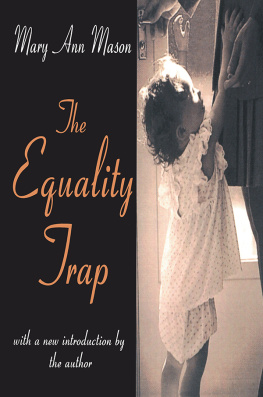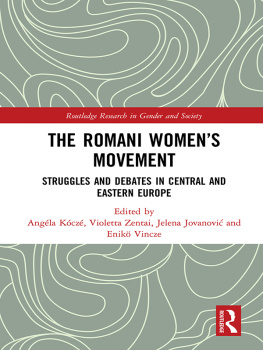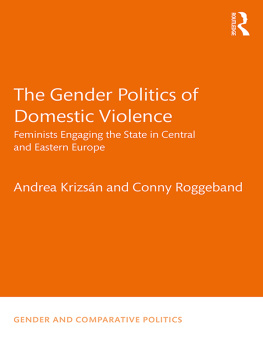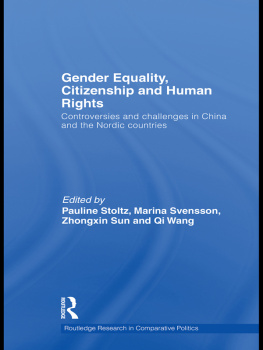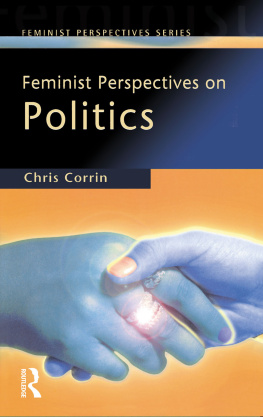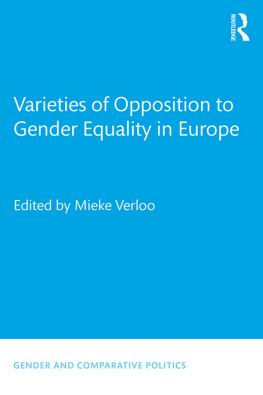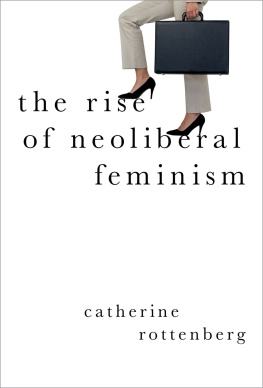
Equality Struggles
In recent times, when European welfare states are undergoing serious economic and social crises and being increasingly exposed to criticism, there has been a noticeable revival of feminist interest in the issues of equality.
Focusing on a signature aspect of Scandinavian welfare states, Equality Struggles explores how gender equality and womens rights are transforming the relationship between Scandinavian states and social actors. Indeed, drawing on in-depth analyses from fieldwork in Denmark, Norway and Sweden, this book examines the largest and most established womens organizations and develops a multi-layered understanding of the entanglements between womens movements, neoliberal markets and state political agendas in Scandinavia as they give rise to feminist fractions and new feminist coalitions.
Contributing to novel understandings of equality struggles within womens organizations, this title will appeal to postgraduate students and scholars interested in fields such as Scandinavian Studies, Gender Studies, Political Science, International Relations and Social Theory.
Mia Liinason is Associate Professor in Gender Studies at the University of Gothenburg, Sweden.
Routledge Research in Gender and Society
Womens Magazines in Print and New Media
Edited by Noliwe Rooks, Victoria Rose Pass and Ayana K. Weekley
Changing Names and Gendering Identity
Social Organisation in Contemporary Britain
Rachel Thwaites
Genealogies and Conceptual Belonging
Zones of Interference between Gender and Diversity
Eike Marten
Black Women, Agency, and the New Black Feminism
Maria del Guadalupe Davidson
Marginalized Masculinities
Contexts, Continuities and Change
Edited by Chris Haywood and Thomas Johansson
Equality Struggles
Womens Movements, Neoliberal Markets and State Political Agendas in Scandinavia
Mia Liinason
Gender, Subjectivity and Cultural work
Classical Music Profession
Christina Scharff
The Conundrum of Masculinity
Hegemony, Homosociality, Homophobia and Heteronormativity
Chris Haywood, Thomas Johansson, Nils Hammarn, Marcus Herz and Andreas Ottemo
Body Image as an Everyday Problematic
Looking Good
Flix Daz Martnez
Women, Horseracing and Gender
Becoming One of the Lads
Deborah Butler
First published 2018
by Routledge
2 Park Square, Milton Park, Abingdon, Oxon OX14 4RN
and by Routledge
711 Third Avenue, New York, NY 10017
Routledge is an imprint of the Taylor & Francis Group, an informa business
2018 Mia Liinason
The right of Elizabeth Parsons, Pauline Maclaran and Andreas Chatzidakis to be identified as authors of this work has been asserted by them in accordance with sections 77 and 78 of the Copyright, Designs and Patents Act 1988.
All rights reserved. No part of this book may be reprinted or reproduced or utilised in any form or by any electronic, mechanical, or other means, now known or hereafter invented, including photocopying and recording, or in any information storage or retrieval system, without permission in writing from the publishers.
Trademark notice: Product or corporate names may be trademarks or registered trademarks, and are used only for identification and explanation without intent to infringe.
British Library Cataloguing in Publication Data
A catalogue record for this book is available from the British Library
Library of Congress Cataloging in Publication Data
A catalog record for this book has been requested
ISBN: 978-1-138-64498-4 (hbk)
ISBN: 978-1-315-63839-3 (ebk)
This book is the result of critical and careful attention from a variety of people. I am indebted to the womens organizations that allowed me to follow them during their struggles for womens rights. Special thanks go to the members of the organizations who generously shared their time, knowledge and reflections.
During the years of this project I have received critical feedback and support from different feminist scholars: Diana Mulinari, Clare Hemmings, Maja Sager, Sabine Grenz, Maria do Mar Pereira, Biljana Kai, Lena Martinsson, Mats Benner, Erika Alm, Elisabeth Engebretsen, Mara Lugones, Harriet Silius, Giulia Garofalo Geymonat, Naomi Scheman, Nina Lykke, Beatrice Halsaa, and Olga Sasunkevich. They have provided me with intellectual inspiration and critical comments, for which I am deeply grateful. In addition, I have received crucial insights and feedback in a number of academic contexts, and here I want to particularly mention the reading group at the LSEs Gender Institute; the Postcolonial and Postsocialist Dialogues conference at Tema Genus, Linkping University; the Department of Diversity Studies at the University of Gttingen; and the Futures of Feminisms in the Nordic Region network. I would also like to thank the students on the master programme Gendering Practices at the University of Gothenburg for their relevant and energizing discussions on the topic of this book.
The feedback and suggestions by three anonymous reviewers brought significant matters to my attention, without which this book would not have been what it is. I am grateful for the encouraging and professional support of my editor at Routledge, Emily Briggs, and Elena Chiu, editorial assistant at Routledge. I would also like to give my deepest thanks to Gill Gairdner for her careful reading of the manuscript and Ruth Bradley for coordinating the production of the book.
Financial support for this project was provided by the Faculty of Social Sciences, Lund University and Knut och Alice Wallenbergs stiftelse (Knut and Alice Wallenbergs Foundation), under grant no. KAW 2015.0180. I am grateful for the opportunities provided by these institutions to conduct this research and writing.
The crisis of women
In the 1930s, the Scandinavian countries experienced falling birth rates, widespread poverty, low-standard housing and high unemployment. Acknowledging this as dysfunctional, unworthy and unhygienic in a modern society, the Norwegian, Danish and Swedish governments embarked upon a project to modernize their societies by establishing inclusive welfare states, later famously depicted as the Scandinavian welfare model. However, due to the use of normalization as an inherent part of its implementation, this has also been described as a deeply ambiguous project (Fahlgren, Johansson and Mulinari 2011). Befolkningskommissionen [the Population Commission] was one of many initiatives taken to shape a more equal society. This particular initiative aimed at improving the living conditions of families with children and increasing the birth rate in Sweden. One important point of departure was the desire to support women in their caring duties, which would be realized by society taking significant responsibility for childcare (Lundqvist and Roman 2010). When the commission published its considerations, the three female members of the commission, the physician Rut Grubb, the politician Ruth Gustafson and the feminist writer and journalist Elin Wgner, added an amendment to the publication, titled The Crisis of Women. In their amendment, they pointed to the divided position of women in relation to the modernizing ambitions. This divided position of women illustrates, they wrote:


